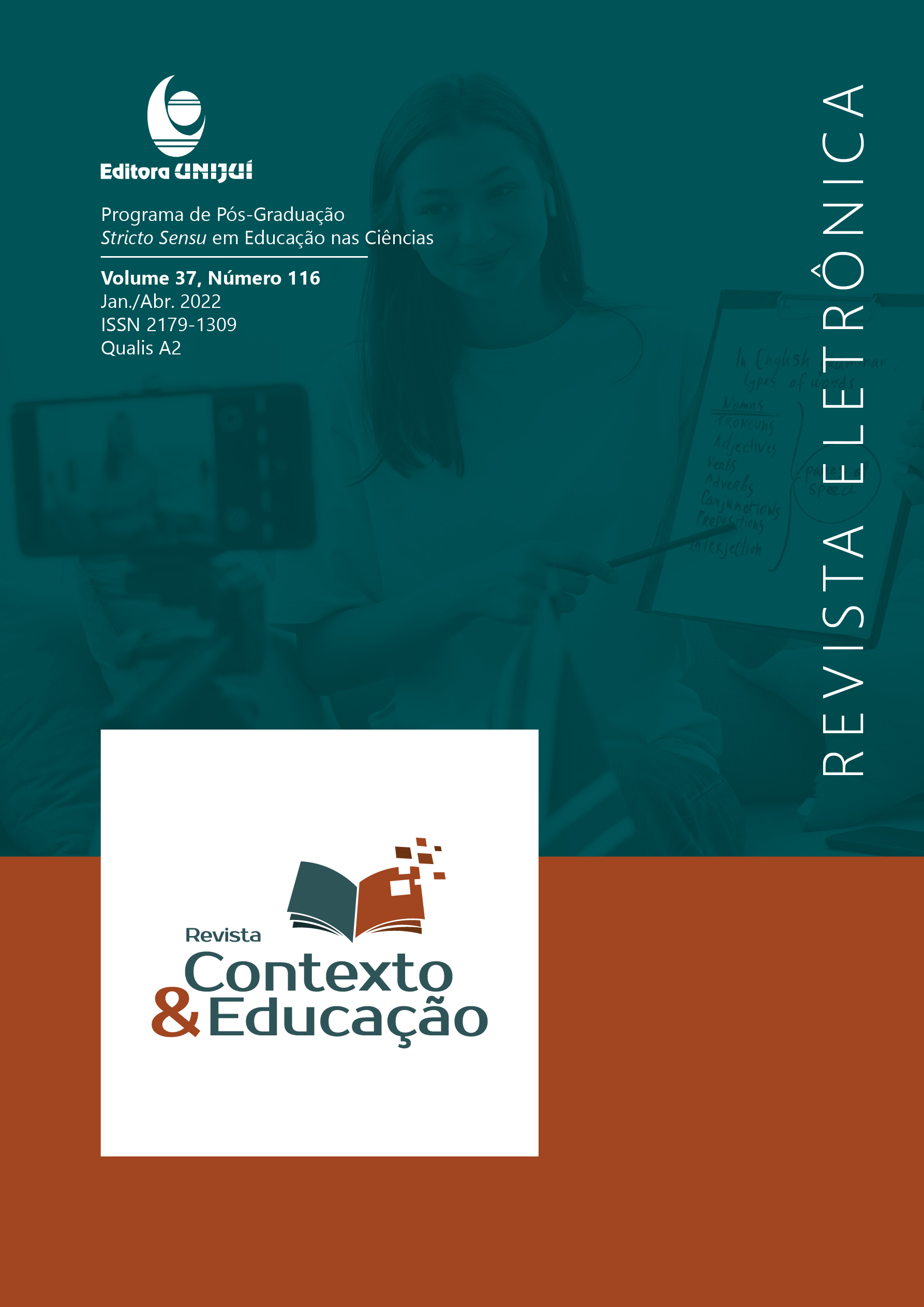MATERIALISMO DIALÉTICO COMO MÉTODO DE PESQUISA: UMA REFLEXÃO A PARTIR DA TEORIA DE HENRI WALLON
DIALETIC MATERIALISM AS A RESEARCH METHOD: A REFLECTION FROM THE THEORY OF HENRI WALLON
DOI:
https://doi.org/10.21527/2179-1309.2022.116.10428Keywords:
Materialismo dialético. Wallon. Pesquisa em ciências humanas.Abstract
A dicotomia entre ciências humanas e ciências “duras” no processo de construção do conhecimento tem sido tema de discussão constante na academia. Nesse sentido, a pesquisa que se ocupa da fala, do discurso, da linguagem pode ser compreendida com certa desconfiança pelos acadêmicos e pesquisadores, o que tensiona o pesquisador a um exaustivo rigor quanto ao método utilizado. Partindo dessa premissa e utiilizando-se do referencial teórico da psicogenética em Wallon, esta revisão teórica busca refazer o percurso histórico da pesquisa em ciências humanas, centrando-se no materialismo dialético como base filosófica privilegiada para a pesquisa quando se busca produzir conhecimento a partir do discurso produzido pelas pessoas. Além disso, tendo por base as contribuições de Žižek, esta reflexão também visa demonstrar a atualidade do materialismo dialético e do marxismo como bases filosóficas na construção do conhecimento, ainda que setores conservadores tentem desqualificar essa opção metodológica apenas por análises políticas.
Downloads
Published
How to Cite
Issue
Section
License
Copyright (c) 2020 Revista Contexto & Educação

This work is licensed under a Creative Commons Attribution 4.0 International License.
By publishing in Revista Contexto & Educação, authors agree to the following terms:
All works are published under the Creative Commons Attribution 4.0 International License (CC BY 4.0), which allows:
Sharing — to copy and redistribute the material in any medium or format;
Adaptation — to remix, transform, and build upon the material for any purpose, even commercially.
These permissions are irrevocable, provided that the following terms are respected:
Attribution — authors must be properly credited, a link to the license must be provided, and any changes made must be indicated.
No additional restrictions — no legal or technological measures may be applied that legally restrict others from doing anything the license permits.
Notices:
The license does not apply to elements that are in the public domain or covered by legal exceptions.
The license does not grant all necessary rights for specific uses (e.g., image rights, privacy, or moral rights).
The journal is not responsible for the opinions expressed in the articles, which are the sole responsibility of the authors. The Editor, with the support of the Editorial Board, reserves the right to suggest or request modifications when necessary.
Only original scientific articles presenting research results of interest that have not been previously published or simultaneously submitted to another journal with the same purpose will be accepted.
Mentions of trademarks or specific products are intended solely for identification purposes and do not imply any promotional relationship by the authors or the journal.
License Agreement (for articles published from October 2025): Authors retain the copyright to their article and grant Revista Contexto & Educação the right of first publication.


